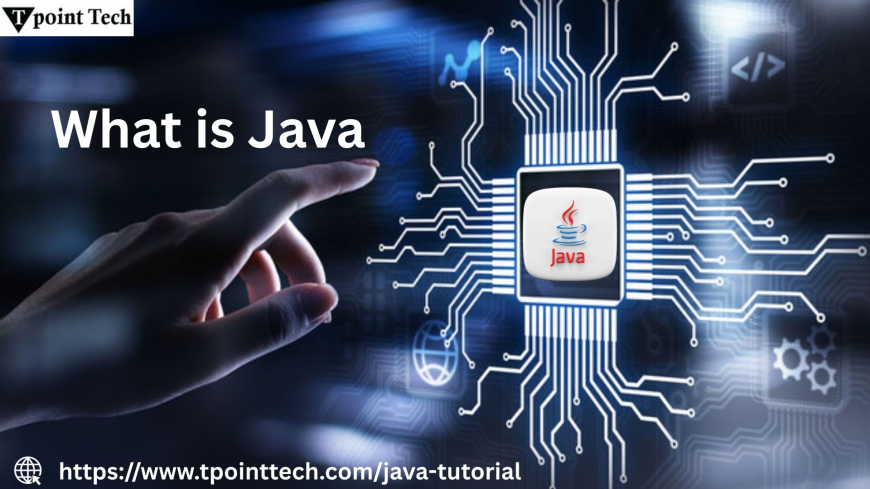Java Code Explained: From Basics to Advanced Concepts

Java is one of the most widely used programming languages in the world. Known for its portability, performance, and large developer community, Java powers everything from enterprise applications to Android apps. Whether you're just starting your programming journey or looking to deepen your understanding of Java, this guide will walk you through the essentials of Java code—starting with the basics and moving into more advanced concepts.
Getting Started with Java
What is Java?
Java is a high-level, object-oriented programming language developed by Sun Microsystems (now owned by Oracle). It follows the principle of "write once, run anywhere," which means code written in Java can run on any platform that supports the Java Virtual Machine (JVM).
Your First Java Program
Here’s a simple Java program to get started:
public class HelloWorld {
public static void main(String[] args) {
System.out.println("Hello, World!");
}
}
Explanation:
-
public class HelloWorld: Defines a class namedHelloWorld. -
public static void main(String[] args): The main method—this is the entry point of any Java program. -
System.out.println("Hello, World!");: Prints text to the console.
Core Java Concepts
Variables and Data Types
Java supports various data types including:
-
int (integer):
int age = 25; -
double (floating-point number):
double price = 19.99; -
char (character):
char grade = 'A'; -
boolean (true/false):
boolean isJavaFun = true; -
String (sequence of characters):
String name = "Tpoint Tech";
Control Structures
Java supports common control structures such as:
If-else:
if (age > 18) {
System.out.println("Adult");
} else {
System.out.println("Minor");
}
Loops:
for (int i = 1; i <= 5; i++) {
System.out.println("Count: " + i);
}
Functions (Methods)
Methods in Java are blocks of code designed to perform a task:
public static int add(int a, int b) {
return a + b;
}
You can call the method using:int result = add(5, 3);
Object-Oriented Programming (OOP) in Java
Java is built on the OOP paradigm, which includes concepts like:
Classes and Objects
public class Car {
String color = "Red";
void drive() {
System.out.println("The car is driving");
}
}
You can create and use objects like this:
Car myCar = new Car();
System.out.println(myCar.color);
myCar.drive();
Inheritance
Inheritance allows a class to inherit properties and methods from another class.
class Animal {
void makeSound() {
System.out.println("Animal makes a sound");
}
}
class Dog extends Animal {
void bark() {
System.out.println("Dog barks");
}
}
Polymorphism
Polymorphism allows one interface to be used for different data types:
class Animal {
void sound() {
System.out.println("Animal sound");
}
}
class Cat extends Animal {
void sound() {
System.out.println("Meow");
}
}
Encapsulation
Encapsulation is achieved using access modifiers (private, public, etc.) and getters/setters:
public class Person {
private String name;
public String getName() {
return name;
}
public void setName(String newName) {
this.name = newName;
}
}
Advanced Java Concepts
Exception Handling
Exception handling in Java ensures smooth execution of code even when errors occur.
try {
int result = 10 / 0;
} catch (ArithmeticException e) {
System.out.println("Error: " + e.getMessage());
} finally {
System.out.println("This block always runs");
}
Collections Framework
Java provides powerful data structures under the Collections framework:
import java.util.ArrayList;
ArrayList<String> list = new ArrayList<>();
list.add("Java");
list.add("Python");
for (String language : list) {
System.out.println(language);
}
Multithreading
Java supports multithreading, allowing multiple tasks to run in parallel.
class MyThread extends Thread {
public void run() {
System.out.println("Thread is running");
}
}
MyThread t1 = new MyThread();
t1.start();
Lambda Expressions
Lambda expressions simplify the syntax of functional interfaces:
interface Greeting {
void sayHello();
}
Greeting g = () -> System.out.println("Hello from Lambda!");
g.sayHello();
Final Thoughts
Understanding Java code from the ground up gives you a strong foundation for software development, mobile apps, web applications, and more. As you progress from writing simple "Hello World" programs to working with OOP and advanced Java features like threads and collections, you’ll be well-equipped to tackle real-world projects.
